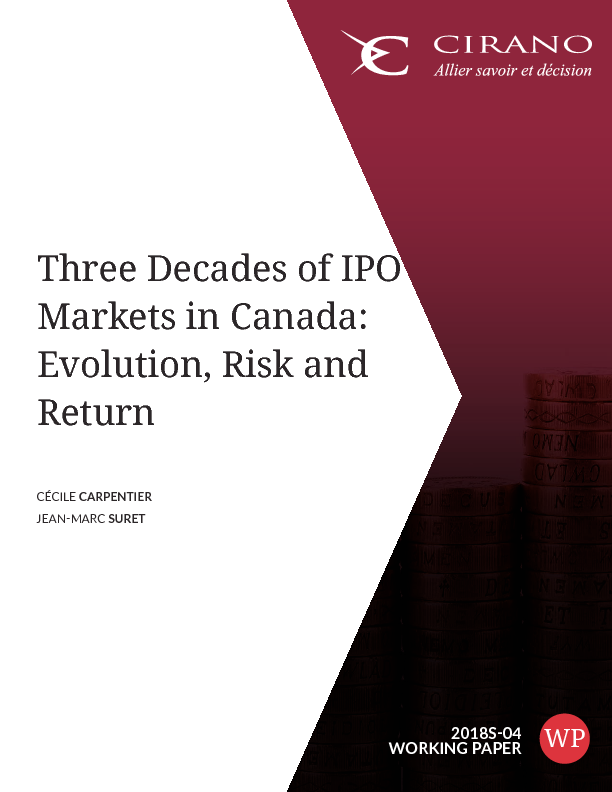Three Decades of IPO Markets in Canada: Evolution, Risk and Return
In Canada, initial public offerings (IPOs) have decreased sharply over the past twenty years, inducing potentially substantial negative effects on the economy. The reasons for this decrease are controversial. To contribute to the debate, we analyze the Canadian IPO market over three decades (1986-2016). First we illustrate its specificities using IPOs on the main and the venture stock exchanges and using other junior markets a benchmark. We discuss the evolution of the IPOs, which differs considerably between natural resource and non-natural resource firms. We then provide empirical evidence based on 2,145 Canadian IPOs. On average, these IPOs generate three-year negative abnormal returns, and more than 70% report negative abnormal returns. Large issuers reporting profits constitute the only subsample that provides fair returns, but they account for less than 5% of IPOs. We observe a high level of skewness of abnormal returns, consistent with the behavioral finance proposition that investors are often unduly optimistic when valuing lottery stocks. The lemon market characteristics of the Canadian IPO market can probably explain why it is vanishing.




